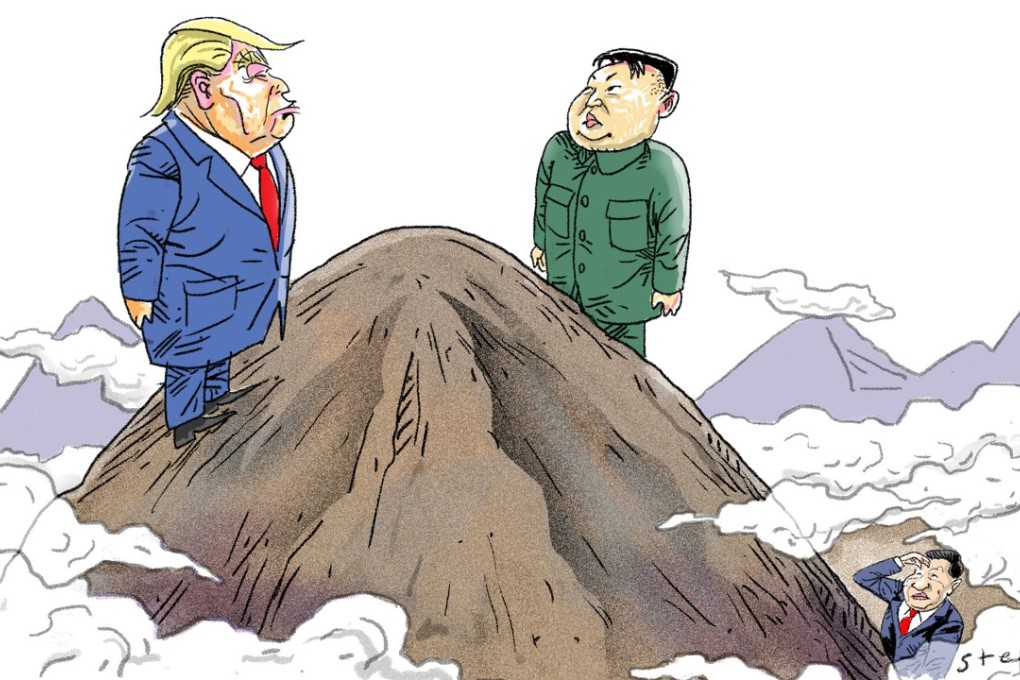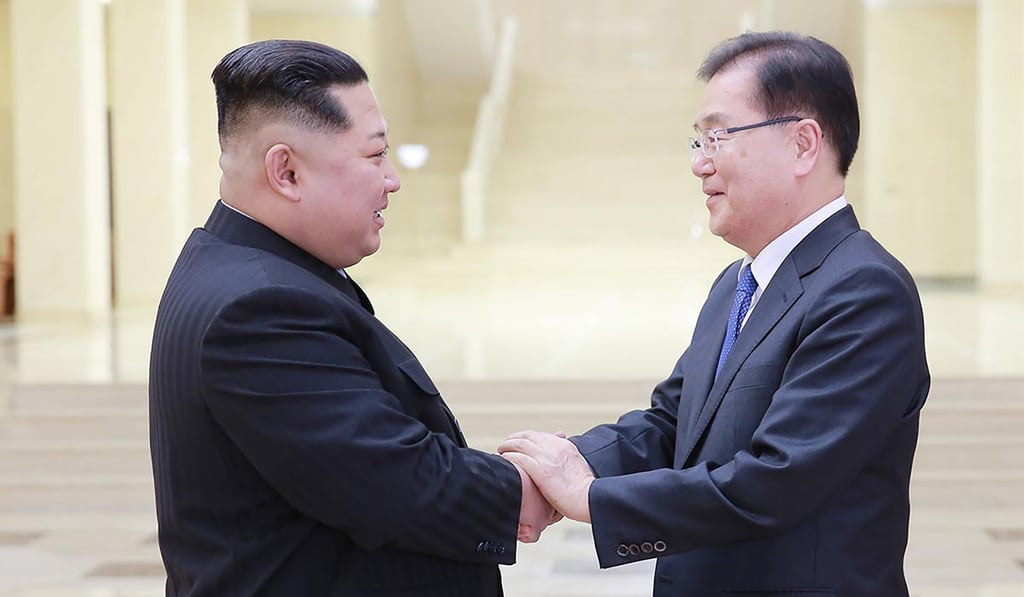Advertisement
How China’s failure to watch its own backyard let the US gain the upper hand with North Korea
Maximilian Mayer says the proposed US-North Korea summit points to the limitations of China’s power in the region and the dangers of a grand geopolitical vision that neglects problems in the country’s neighbourhood
Reading Time:4 minutes
Why you can trust SCMP

The agreement between North Korea and the United States that both heads of state will meet for the first time in history to engage in face-to-face negotiation is a risky gamble. On the one hand, the news renewed hope that the nuclear crisis on the Korean peninsula might be resolved peacefully. On the other, a war seems almost unavoidable if the talks fail. Either way, the outcome will shape the future of East Asia in unexpected ways. While many observers overestimate China’s power, the surprise announcement reveals Beijing’s limited ability to shape the regional order.
US President Donald Trump escalated military threats against North Korea, including a veiled threat on Twitter to use nuclear weapons, while pressuring China, North Korea’s main economic lifeline, into strictly implementing the additional suite of UN Security Council sanctions. This policy is for many observers reckless, as it places millions of civilians in South Korea, Japan and other places at risk.
Yet, as operational preparations ensued at US bases in Japan, South Korea and Hawaii, South Korea used the short window of the Winter Olympic Games for a peace offensive. A South Korean envoy met North Korean leader Kim Jong-un, after which the South Korean president’s office declared that “the North Korean side clearly stated its willingness to denuclearise”. The double strategy of maximum military pressure and diplomatic engagement bore fruit.
Advertisement
Can we expect a positive outcome? The stakes could not be higher for all the involved parties. No country can afford a summit without graspable results. A failure would firmly set the course towards a military solution.
EU admits having ‘secret’ talks with North Korea for last three years to end its nuclear programme
There are strong positive incentives on both sides to find common ground. Generations of North Korean leaders have been longing for recognition from the international community. Kim wants direct talks with the US. Trump needs to improve his ravaged image as his country’s top diplomat. The US could offer a peace accord and substantial security assurances in exchange for a verifiable destruction of nuclear weapons. Finally, a toxic mix of overconfidence and vanity drives both leaders’ desire to prove their “superior” skills.
Advertisement

Advertisement
Select Voice
Select Speed
1.00x